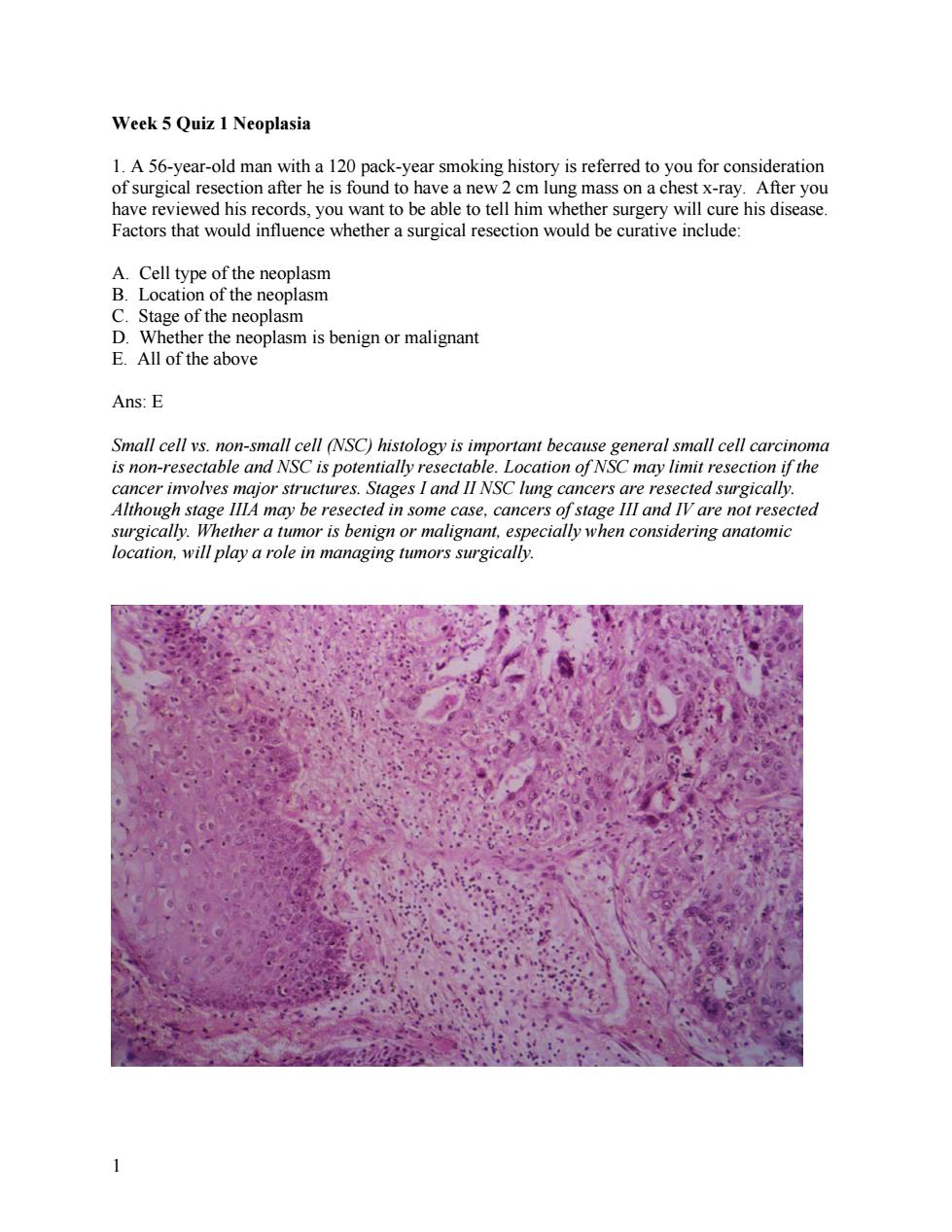正在加载图片...

Week 5 Quiz 1 Neoplasia 1.A 56-year-old man with a 120 pack-year smoking history is referred to you for consideration of surgical resection after he is found to have a new 2 cm lung mass on a chest x-ray.After you have reviewed his records,you want to be able to tell him whether surgery will cure his disease. Factors that would influence whether a surgical resection would be curative include: A.Cell type of the neoplasm B.Location of the neoplasm C.Stage of the neoplasm D.Whether the neoplasm is benign or malignant E.All of the above Ans:E is non-resec mnd NSC is h cted surgically h is benign or malignant,especially when considering anatomic location,will play a role in managing tumors surgically. 1 Week 5 Quiz 1 Neoplasia 1. A 56-year-old man with a 120 pack-year smoking history is referred to you for consideration of surgical resection after he is found to have a new 2 cm lung mass on a chest x-ray. After you have reviewed his records, you want to be able to tell him whether surgery will cure his disease. Factors that would influence whether a surgical resection would be curative include: A. Cell type of the neoplasm B. Location of the neoplasm C. Stage of the neoplasm D. Whether the neoplasm is benign or malignant E. All of the above Ans: E Small cell vs. non-small cell (NSC) histology is important because general small cell carcinoma is non-resectable and NSC is potentially resectable. Location of NSC may limit resection if the cancer involves major structures. Stages I and II NSC lung cancers are resected surgically. Although stage IIIA may be resected in some case, cancers of stage III and IV are not resected surgically. Whether a tumor is benign or malignant, especially when considering anatomic location, will play a role in managing tumors surgically